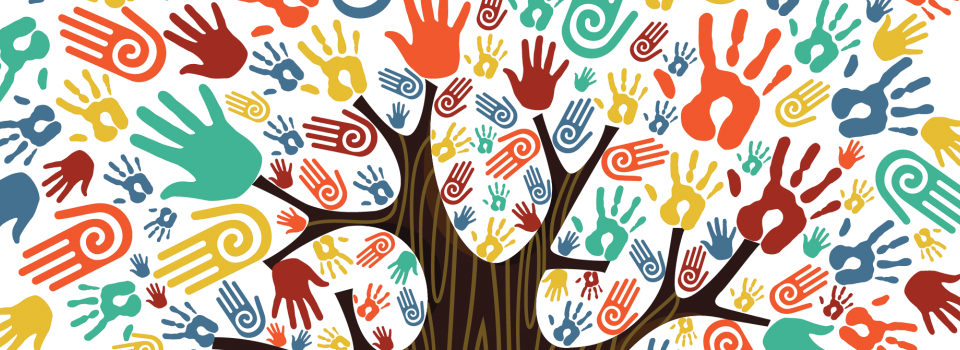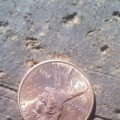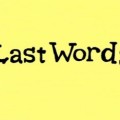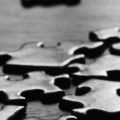
Something I’ve heard many survivors talk about is how they refer to a loved one in conversation after they’ve passed. This most commonly comes up among parents who are asked how many children they have, or siblings who have lost a brother or sister. Many feel inclined to say the true number of kids or siblings they have, which includes the person who died. Just because they aren’t here anymore doesn’t mean they should be left out. Others wrestle with whether or not to count that person out when telling someone the number, because they died [by suicide]. Technically, they are gone, so will it open a can of worms to mention one is no longer alive? It seems like such a trivial issue, but I know it’s one many survivors take to heart.
Along those lines, I feel uneasy when people ask me questions like where my family lives, since I’m in another state, or if my parents are excited about a first grandchild on the way. I usually respond with, “my mom lives in XYZ” and “yes, my mom is really excited to have a grandchild.” No one really asks about my dad when I say this. But, inside, I wonder what they’re thinking. Do they think my parents are divorced and that my dad is off living a life somewhere else? Or, do they think he’s otherwise out of the picture of our family, for potentially negative reasons? Maybe they do think he died, but of something more commonly accepted, like a heart attack or cancer. I’m sure they aren’t thinking anything at all, but it still makes me self-conscious. At the time of his death, my parents had been married for more than 30 years. We lived in a seemingly happy, quintessential American home – red brick with a white picket fence, a boy (my brother) a girl (me) and a little dog. We golfed on weekends, took trips to Disney World and supported each other at school and work functions and all sorts of extracurricular activities. How can it be that I can’t innocently say, “my parents live in X” anymore because my dad decided to kill himself? I never thought this happened to people like “us.” But, it did and does. It can happen in any family. No matter how much time has passed, I still can’t swallow this. It only reminds me of what he did every time I am asked these simple questions…I can imagine others feel similarly when asked how many kids, siblings, etc. they have.
It’s usually rare for someone to ask how your loved one died, which I’m particularly thankful for. Depending on who asks or how it comes up, I will usually divulge that my dad took his life, since the news was so prevalent, versus making something else up. However, I know that deciding how to refer to loved ones after death differs for everyone.
How have you handled questions when asked about the loved ones in your life? Do you mention the person when telling people how many kids/siblings, etc. you have?




I try and tell people my husband died of a “complication” from a ruptured back injury and they always say, how can a back injury kill you?
To that I add, if they continue to press that he became very weak and if they still persist then I explain how depression set in…and when they push further, sometimes I get angry and say, well, I took a shower on an ordinary Friday and he strangled himself.
I feel the look they have is always shock but also, I my, I did not know he was crazy…..
My husband was not crazy. He was wonderful, hard working but could not cope with what was happening to him because he suffered from an anxiety disorder which led to depression.
I feel that they must think, he was messed up and I must have been too….but then I realize that ANYONE who thinks that is ignorant and has no clue.
So form now on if they ask AFTER I tell them he died from a complication from a very serious back injury, I say, “Why do you want to know”? and throw a question back at them.
You see whenever anyone asks you something you don’t want to answer, ask them why do they need to know. Puts them in the hot seat, lets you off the hook and honestly why do they need to know more than the fact that the person has died, period.
If they want drama, tell them to go watch some crime show/movie.
Self preservation.
Patty C
My responses have changed over the eight years since my brother’s suicide but I have learned to say that I grew up with two brothers. If it goes further then I say one brother is married with a child and one passed away a few years ago. If I’m asked how he passed I usually just say it was sudden and it ends there. I want to talk about him and he deserves to be talked about but I rarely discuss his death. If I encounter someone pushy then I politely say that people deserve to be remembered for how they lived and not how they died. That’s hard to disagree with.
I say the truth, one sister and two brother’s. My brother Abraham counts and will always be my sibling no matter how he passed. If people ask how he passed away I say he suffered from depression and took his life. The truth of his passing is what’s helped me accept he is no longer with us.
When I’ve been asked how many children I have I always say 2, a son who is 27 and a daughter who passed away 2 1/2 years ago at the age of 20. And when I am asked how she passed I tell the truth……suicide. I have never tried to call her death anything other than what it is, suicide. Until more survivors speak up and not try to hide from the cause of death the longer it will take to educate people that it is an illness that drives people to suicide and not a weakness or whatever. I believe that when people hide the truth that what they are really hiding is their feeling of being ashamed and being judged by others. The people who judge and make survivors feel ashamed leave the door open for an education on a subject they know NOTHING about. Take advantage of that open door while it’s open and use it as an opportunity to end the stigma. It’s really amazing yet sad the number of people you will find that have been affected by suicide in some way or knows someone who has been. Suicide is not something that should be treated with shame, embarrassment, fear of what others think or any of the other stupid things that people come up with. It is caused by an illness that happens to affect a person’s brain rather than any part of the body below the neck.
I completely agree with you Diane. When asked how my father died, I am truthful in my response. I have been since day one. I know that others have a difficult time as they do feel a heavy sense of shame. I hope that my voice can speak for those who can’t as we work to end the stigma surrounding mental illness. It is amazing how many people have been touched by suicide, and continue to be. I do hope that we survivors can help change this epidemic.
Your comments are so right on!!! I have a son who has self medicated with drugs and alcohol in the past and over the past four years has developed schizophrenia symptoms. Fortunately, we have connected with a program and he is living in a sober living house and getting counseling and medication to help him
. When I discuss him, it is in these terms. I have a second son who has made different, more mainstream choices, and I discuss him in those terms. Almost invariably, when I mention mental illness, the other person has a similar story about a loved one or friend. One in four people in this country suffers from a form on mental illness. The sooner we get over ourselves and put it out there in the world, the faster change will take place to help families, who often feel very alone and helpless to know what to do, to get help they need for their loved ones. Laws need to be changed as well to assist with those who are resistant to getting help.
You are so spot on Diane. Shortly after I lost my 17yr old daughter 2 years ago, I as sitting at her grave. Someone came up, saw her picture and asked if I was the mom and what happened. I straight up said she suffered from severe depression and anxiety and she took her life. I have been very outspoken to try to stop the stigma. Being silent (imo) feeds the stigma. I am very proud of my daughter – how she lived. But she had a demon that stole her from me, her family, friends …. and what she could have been. I don’t want that to happen to any more young people and I will advocate and fight for those struggling to know they are not alone, there is help, there is hope.